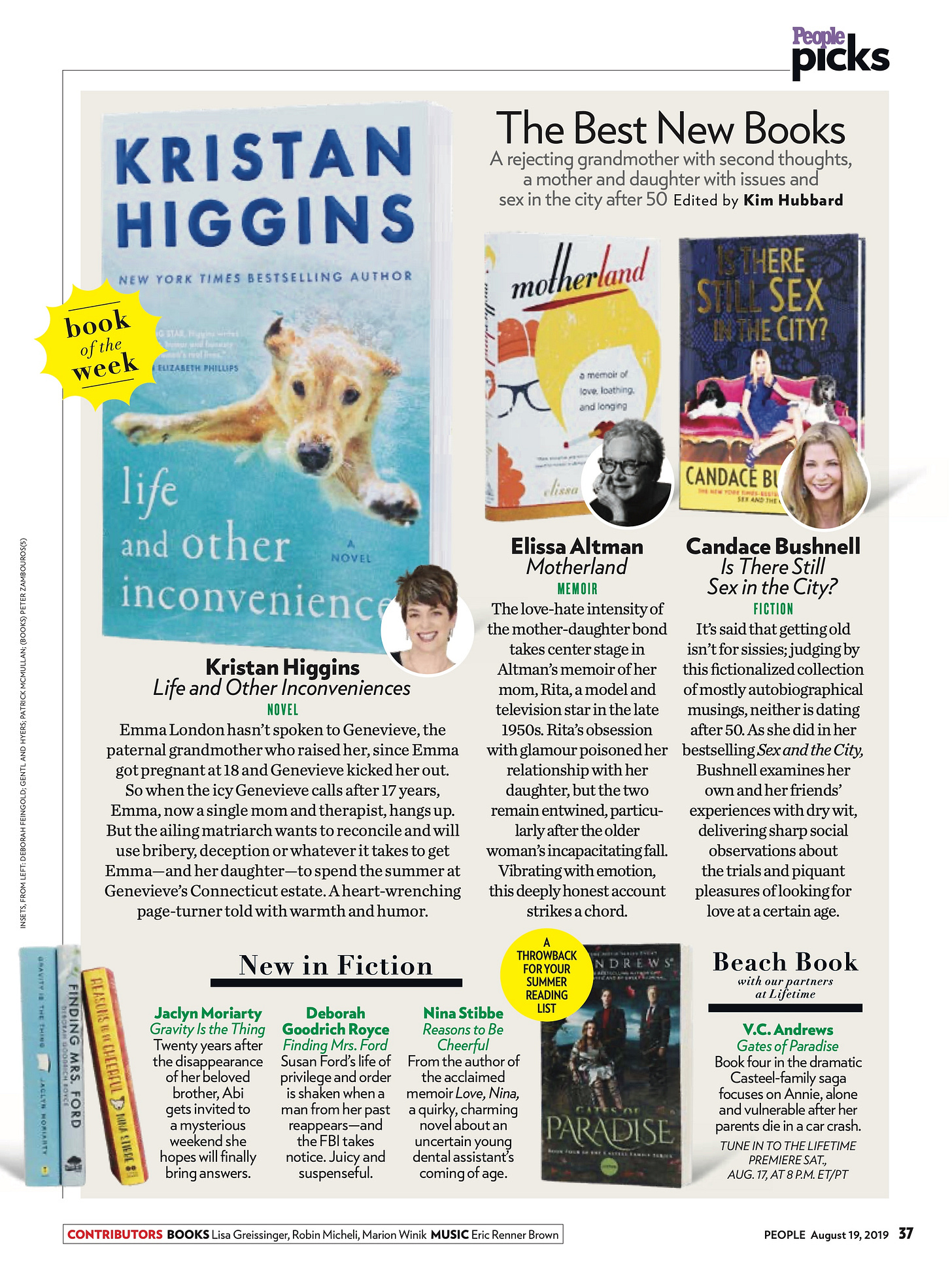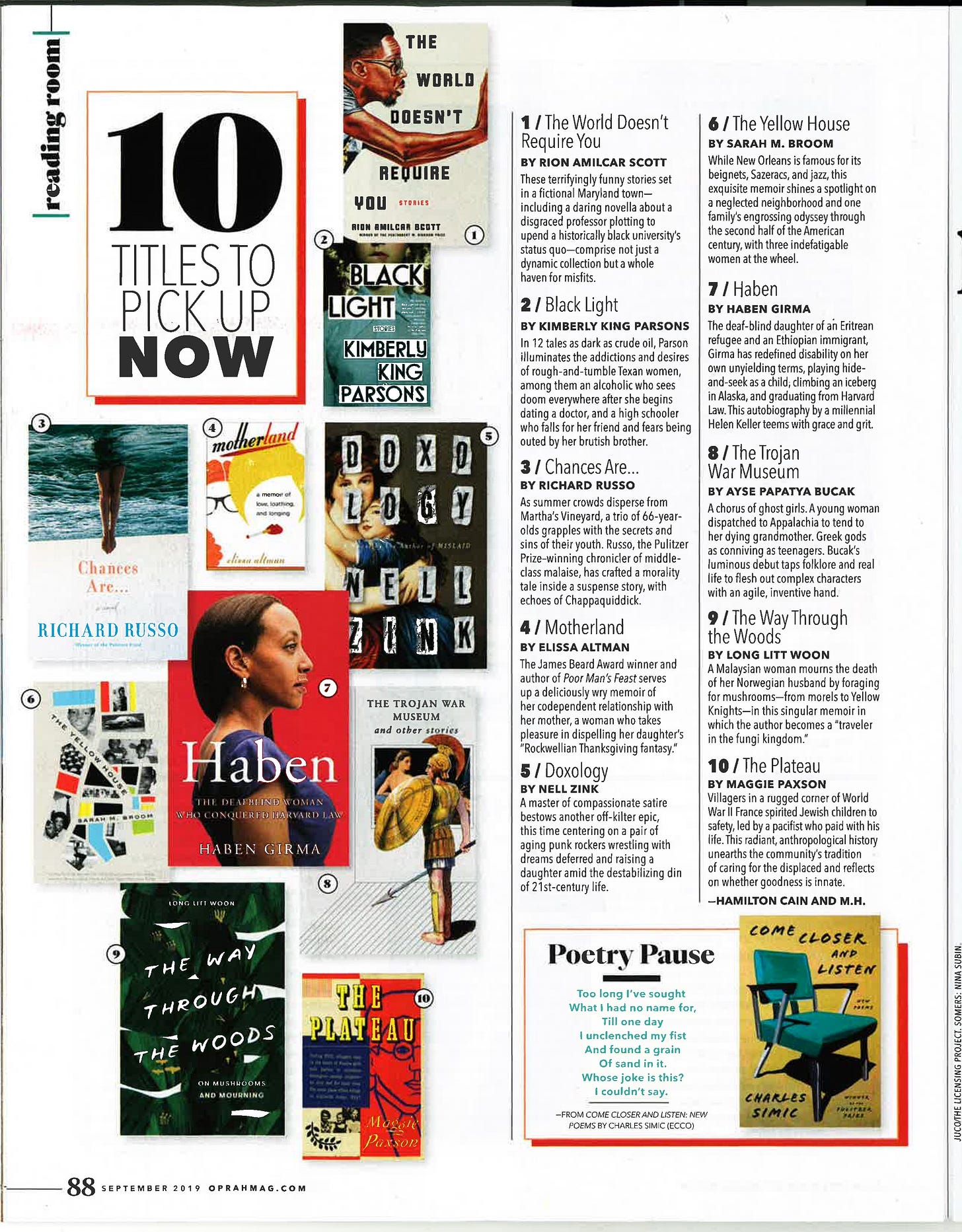a sneak peek at the new edition of Poor Man's Feast
The Introduction to the Tenth Anniversary Edition
Last week was momentous: after a decade since its first publication, my first book, Poor Man’s Feast: A Love Story of Comfort, Desire, and the Art of Simple Cooking, was reissued, at long last, with a new introduction. My second book, Treyf: My Life as an Unorthodox Outlaw, which I took out of print a few years ago (I had five editors, two publishing directors, three publicists, and a change of imprint in the year prior to publication, which meant that by the time the book came out, there was no one left at the publisher who’d read it), was also reissued in a beautiful new package. Both books are also finally available as audio downloads with me narrating, and also as ebooks.
Returning these books to print was nothing if not an odyssey, and one that I nearly abandoned many times, had it not been for the support of my agent, Adriana Stimola, and publisher, Open Road Media. I spent almost thirty years working for major publishers in senior editorial capacities, so I have sat on the other side of the desk a lot, and I say this from experience: it does not always matter whether a book is well-received or not, or how many people are talking about it, or whether Oprah loves it or People Magazine has picked it up for its weekly roundup; the trip to bestsellerdom, or even a long backlist life, is pocked with landmines that can result in a quick trip to the remainder bin if one doesn’t hit the bestseller list first, and not always even then. It is a risky and often heartbreaking business, and it tends to forget the fact that the work that we do — that all artists do, be we writers or illustrators, or some permutation of both — is born from enormous creative focus and labor, not to mention sacrifices that run the gamut from emotional to (certainly) financial to domestic. So why do we do what we do? Without being romantic, or dramatic: because it is a part of our cellular structure, like the color of our eyes, and the texture of our hair. Writers cannot not write. Ask any writer why we tend to be so connected to our work: because it is who we are. It could not be any other way, in spite of the pitfalls and the landmines, the supporters, the naysayers, the critics, the numbers. When a reader reaches out to me — a queer, quiet, married, Jewish, older middle-aged woman in rural New England, who grew up in sixties and seventies urban New York City, the only child of a mentally ill mother for whom she now bears responsibility — and says that my work has made them feel less alone, or in some small way remotely understood, it is worth everything.
Whoever you are, it is my hope that you will read the new editions of Poor Man’s Feast and Treyf, or listen to them wherever you download your audiobooks. In gratitude for the support that you have continued to offer me over the nineteen months since my first Substack journal was published, I am sharing, exclusively and for paid subscribers only, the introduction to the new edition of Poor Man’s Feast.
New Introduction
As of this writing, Poor Man’s Feast is ten years old. It was, for all of us, a very different world in 2013, when it was first published. Barack Obama was President of the United States. No one could conceive of a virus that would kill millions and divide the world into those who believed and those who didn’t, even as the latter fell critically ill. Nobody would have thought that a man wearing a fur cloak and buffalo horns would breach the Capitol building. In 2016, my mother would suffer a catastrophic fall at her New York City home, and I would become her primary care manager despite decades of emotional discord. And Susan and I, together for thirteen years at the time of the book’s original publication, could not have fathomed that our own lives would be upended by withering loss: Susan’s mother died shortly after the book came out, and all the aunts and uncles on both sides who played key roles in the story are gone. In the last decade, I also learned this truism about writing memoir: ancient stories can be kept secret on one side of a close-knit family but not the other, and an author has no control over how the revelations will unfold, even as she crafts her narrative in a manner meant to clarify, redeem, and heal. In other words (and this is something I tell my memoir students): fallout is entirely unpredictable.
Poor Man’s Feast is a simple, linear love story about two women who find each other against all possible odds. They come from vastly different backgrounds, but they find safety, sustenance, and even a little faith in the kitchen, at the table, and in the act of feeding the people they love. It is also about the human search for what sustains our hearts and souls as well as our bodies. What was behind my father’s insatiable yearning for security—a visceral hunger so devastating that he passed it on to me at the epigenetic level, like height, hair texture, and the color of my eyes? What was behind my mother’s need of a different kind—the obsessive-compulsive yearning for the trappings of beauty, an addiction the reasons for which would be revealed in a future book, Motherland? What was it that turned a foundational family story into something so shameful that it was hidden for generations until I wrote about it in the first edition of the book, and then found myself suddenly alone? How is the intergenerational threat of abandonment directly connected to food, the table, and to what the late Marion Cunningham called the Modern Tribal Fire?
In 1974, when I was eleven years old, my Aunt Sylvia went on a trip to Australia and New Zealand. She brought back souvenirs for the entire family, and my gift was a yellow tee shirt depicting fifty sheep, all of whom were white, except for one, which was black. Funny or not, it was certainly accurate: she identified me even at eleven years old as the family blacksheep, and she wanted me to know it, and to recognize myself as different. I was an outlier, forever on the outside looking in, even then. I searched for answers to who we were in the writing of Poor Man’s Feast because of the messages I absorbed as a child and could not quite decode; to quote Dani Shapiro, I tried to make meaning from our history, and order out of our chaos. I watched how my family organized their relationships with ancient grief, unfathomable hunger, lust, mental illness, secretkeeping, and joy, and how these relationships played themselves out around the table. I watched how they metabolized and defined love and commitment, and I took away from them the promise, possibility, and sanctity of a long-term relationship, at which I seem to have succeeded.
When this edition of Poor Man’s Feast comes out, Susan and I will have been together for twenty-three years, and so much has changed since our first date on that freezing night in January 2000. There has been boundless joy, and unspeakable loss. Many of the places I write about, like Dean & DeLuca and Tartine, are now long gone, and mere shadows of a Manhattan that doesn’t exist anymore. The way Susan and I eat and think about food has changed: gone are the multi-course dinners made every Saturday night from ingredients as rich in caloric density as cost. Now, our meals are simpler, much smaller in portion size, and often one-bowl affairs that are heavily vegetable-forward. In the last decade, we have broken bread with friends and family all over the world, from New Mexico to the San Juan Islands, Ireland to Iowa City, Paris and London to our beloved Maine, where we expect to move. Our compass is pointing north, where the growing season is short, the water cold, and everything from the people to the food, authentic. Over the years, I have finally come to terms with the sudden, violent, and traumatic loss of my father, documented in the last pages of this book. In this story, I associated nurturing and sustenance with him, and when he was gone, it was as if a trap door had opened beneath us, and we dropped together in an untethered freefall. When I lost him, I lost cousins and aunts and uncles along with him – many of the people I’ve written about here – and so the writing I do now is inevitably touched by a sort of grief that, as the late poet Donald Hall once said, has a life of its own and its own work to do.
This new edition of Poor Man’s Feast is still vitally connected to the table, and what goes on there. For every joy in the story—a new love, a move to the country, the fact that I found My Person against all possible odds—there is equal sorrow. With age comes wisdom: this is what life is at its most pure, bittersweet, and beautiful.
Elissa Altman









P.S. I loved Poor Man's Feast! It's how I found your work!
Thank you for this. Your last statement about how your father's sudden death initiated a free fall of loss resonates intensely for me. My experience has been the same.